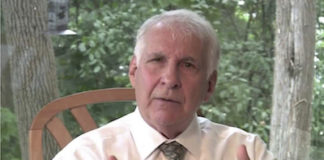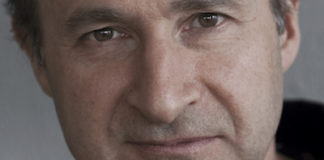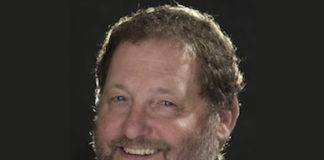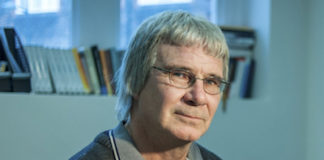Tag: informed consent
Whistleblowers at Research Institutions Fear Retaliation
From The Washington Post: A new investigative report on deterrents in reporting problems with human research found evidence of fear of retaliation among whistleblowers in...
Irving Kirsch: The Placebo Effect and What It Tells Us About...
Dr Irving Kirsch is Associate Director of the Program in Placebo Studies and lecturer in medicine at the Harvard Medical School and Beth Israel Deaconess Medical Center. He joins us this week to discuss his research into the placebo effect and what it tells us about the efficacy of antidepressant drugs.
Peter Breggin, MD: The Conscience of Psychiatry (part 2)
Dr Beggin tells us about recent developments with the Michelle Carter trial, and we discuss alternatives to psychiatric drugs and the value of the therapeutic relationship.
The State of the Evidence Base for Current Medical Products
In this post for Yale Law School's CRITical Thinking, Tom Jefferson discusses some of the factors that currently serve to undermine rational and ethical medical...
Bob Fiddaman: Taking on the Pharmaceutical Regulators and the Seroxat Scandal
Today on the MIA podcast we talk to Bobby Fiddaman about his experiences of the mental health system, his research and campaigning over the years and his relationships with the UK and US pharmaceutical regulatory bodies.
Peter Breggin, MD: The Conscience of Psychiatry
On this episode of the MIA Radio podcast, we present part one of an interview with Dr. Peter Breggin about his career, his views on psychiatry and recent developments with the Michelle Carter trial in which he testified as an expert medical witness.
Jim van Os: Rethinking Biological Psychiatry
Psychiatrist Jim van Os is Chairman of the Department of Psychiatry and Psychology at Maastricht University Medical Centre, Maastricht, The Netherlands. He challenges current diagnostic conceptions of schizophrenia and other mental disorders, and offers a vision for creating a new paradigm of mental health care.
Pratima Singh: Exploring Alternatives to Biological Psychiatry
Pratima Singh, who got her medical degree in India, works at the Maudsley NHS Hospital in London as an adult psychiatrist. She has a deep interest in alternatives to biological approaches to psychiatry and the use of psychotropic medications.
New Study Examines User Experience of Discontinuing Psychiatric Medications
Researchers find that support and self-care were helpful for users during discontinuation, but that mental health professionals were not very helpful.
“Maybe You Need Meds”: From Passive Patient to Finding My Voice
I made journaling non-negotiable. I started sitting in nature and running trails. I practiced being present and prioritized sleep. These things are often seen as what you do if your problems aren’t really that bad. But to me, these are the things I do to save myself every day.
Over 1,000 Antidepressant Users Describe how Their Personal Life has Been...
Survey examines adverse personal and interpersonal effects of antidepressants and the impact of polypharmacy
Will Hall: A Harm Reduction Approach to Mental Health and Wellbeing
Will is a mental health advocate, counsellor, writer, and teacher. Will advocates the recovery approach to mental illness and is recognised internationally as an innovator in the treatment and social response to psychosis.
Benzodiazepine Awareness: Raising Global Understanding
Benzodiazepine Awareness seeks to raise global awareness of iatrogenic benzodiazepine dependence, the dangers of its adverse effects and the associated withdrawal syndrome, which can last for years.
Mo Hannah: Changing the Teaching of the Biological Model
Maureen Hannah, a Professor of Psychology at Siena College, New York, tells of experiences with the psychiatric system, both personally and professionally, and how poor care in the mental health system led to an unexpected and devastating family loss.
Jim Gottstein: Patient Rights in Mental Healthcare
Jim Gottstein, president and founder of the organisation Law Project for Psychiatric Rights, talks about his own experiences with the psychiatric system, patient rights in mental healthcare and the recent trial between Wendy Dolin and the UK Pharmaceutical manufacturer GlaxoSmithKline.
John Read: The Epidemic of Psychiatric Overprescribing
Professor John Read of the University of East London talks about the overuse of psychiatric medications and the alarming growth in the prescribing of antidepressants, benzodiazepines and other psychoactive medications.
No Psychiatrist Needs to Use ECT
Modern psychiatrists are taught that all mental disorder is biological in nature. As a result, they aren't taught psychotherapy, and when they get a complicated patient, they don't know what to do. Thus, they very quickly reach the limit of their skill set and have no option but to reach for the electrodes.
Peter Gøtzsche: The Pharmaceutical Manufacturers Dominance of Mental Healthcare
Professor Peter Gøtzsche is Director of the Nordic Cochrane Centre in Denmark and discusses his background in research, his views on antidepressant prescribing and how pharmaceutical manufacturers have influenced mental healthcare.
Robert Whitaker: The Astonishing Rise of Mental Illness in America
We discuss Robert's 2010 book, Anatomy of an Epidemic, which is arguably the definitive account of the realities of psychiatric drugs and completely lays bare the astonishing rise in mental ill health despite the availability of psychiatric drugs.
Chaya Grossberg: A Naturopathic Approach to Mental Health and Wellbeing
Chaya Grossberg shares her own experiences of the psychiatric system and how she now helps and supports those struggling to withdraw from their psychiatric medications.
Gary Sidley: Alternatives to Bio-Medical Psychiatry as Ways of Responding to...
Dr. Gary Sidley worked within NHS mental health services for 33 years in a variety of nursing, psychological and managerial roles. In the 1980s...
Peter Groot: A Novel, Practical Solution For Those Withdrawing From Psychiatric...
Doctor Peter Groot from the User Research Center of the Maastricht University talks about Tapering Strips, which help users who want to withdraw from their psychiatric drugs safely and in a controlled way.
David Healy: Making Medicine Safer for All
Doctor David Healy from Bangor University in Wales talks about prescribing practice, medicine safety and pharmaceutical regulation.
Lucy Johnstone: Why Underlying Causes of Emotional Distress are Often...
Doctor Lucy Johnstone talks about our reliance on the concept of diagnosis, how that doesn't fit well with psychological or emotional distress and how a predominantly biomedical view of tends to lead to a purely medication centred approach to mental healthcare.
Terry Lynch: Why Psychiatry Has Pursued a Purely Medical Approach to...
Doctor Terry Lynch is a GP, psychotherapist, author and mental health educator. Ten years into his career as a GP, he became very concerned about the medical approach to emotional and mental suffering and was not prepared to remain silent.

































